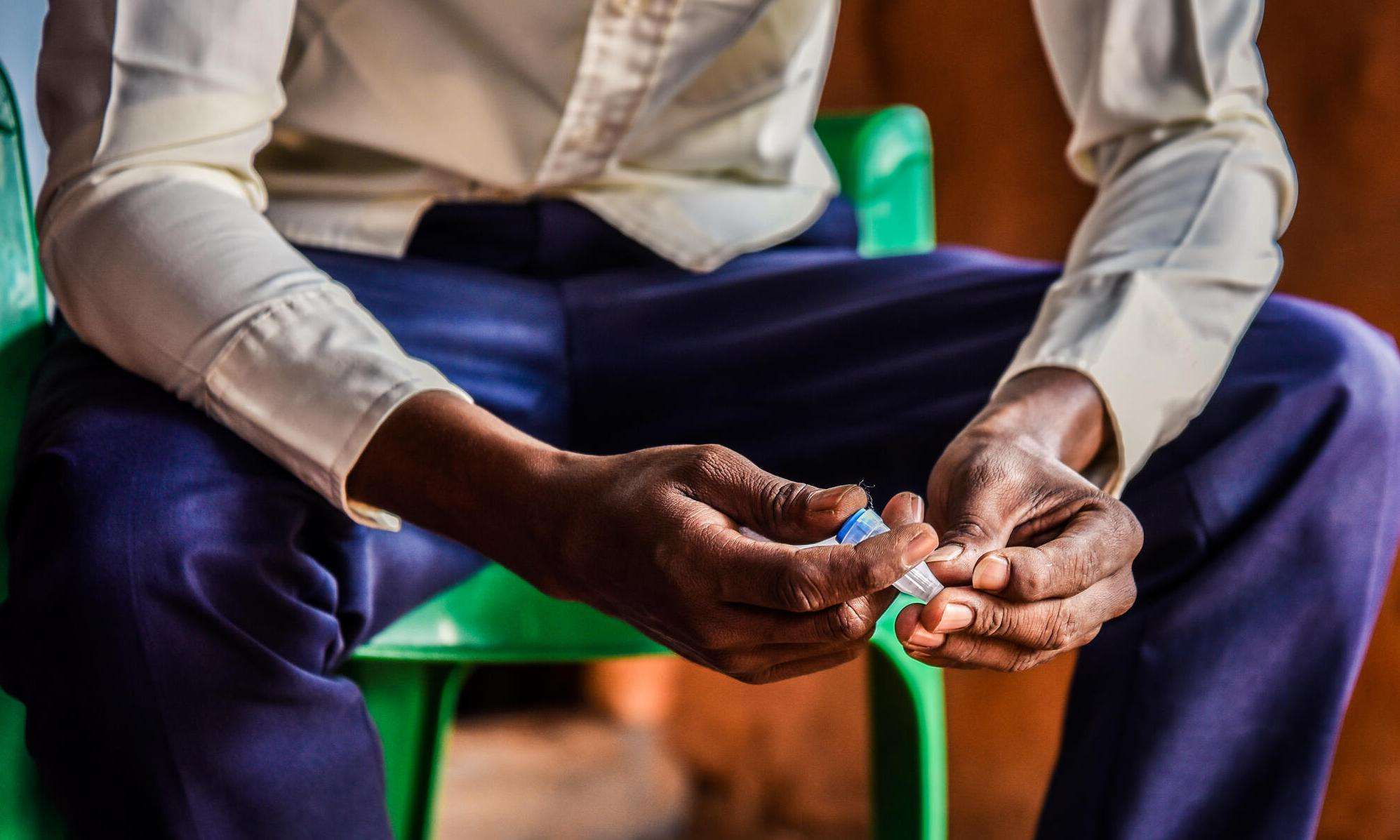MSF calls for ambitious targets for the diagnosis, treatment, and control of diabetes, as well as transparency of insulin pricing to ensure affordable access worldwide
NEW YORK/GENEVA, MAY 12, 2021—The international medical humanitarian organization Doctors Without Borders/Médecins Sans Frontières (MSF) welcomes countries’ discussion of a new global resolution on “Diabetes prevention and management, including access to insulin” ahead of the World Health Assembly later this month. All countries must use this opportunity to boost access to treatment for people living with diabetes everywhere, said MSF.
MSF is urging governments to use this resolution to set global targets for both type 1 and type 2 diabetes diagnosis, treatment, and control similar to the 90-90-90 goals used in the global HIV response to help get people tested, put on treatment, and effectively manage their life-long illnesses. They must also demand pharmaceutical corporations be transparent about why they charge high prices for various types of insulin—a medicine discovered 100 years ago—and the medical supplies required to inject and monitor this lifesaving treatment.
“The tools to manage diabetes have existed for decades, but access remains a huge challenge in the absence of political will,” said Dr. Helen Bygrave, chronic diseases advisor for MSF’s Access Campaign. “Taking cues from the momentum gained through the 90-90-90 targets in HIV treatment programs, it is time for governments to set similar ambitious global targets to improve access to diagnosis and treatment of diabetes for all, and control of the disease in order to prevent the serious complications that we see in many people today.”
The negotiations on the resolution, proposed by Russia, are ongoing and expected to end by May 14, followed by a formal presentation of this resolution at the World Health Assembly between May 24 and June 1. The resolution focuses on prevention and treatment, including access to insulin, and aims to ensure that availability of insulin becomes an integral part of all countries’ national strategic policies for diabetes. It also seeks to establish a mechanism for holding all countries accountable for reporting on global targets for the diagnosis, treatment, and control of diabetes.
Scientists who discovered insulin 100 years ago sold the original patent for one dollar with the intention of ensuring universal access. Yet, for people requiring insulin, a combination of factors, including high prices, serve as barriers for people seeking treatment. The estimated costs to produce a 10mL (1000 units) vial of human and long-acting analogue insulin are $3.37 and $5.13, respectively. However, actual prices vary significantly among countries and health sectors and are often not publicly known; corporate pricing practices are opaque and difficult to understand. According to a 2017 study, the median government procurement prices of different types of human and analogue insulin in 10mL vials were between $6 and $34.
In MSF projects, prices of human insulin range from $2.30 to $12.15 per 10mL vial. In non-communicable disease (NCD) programs, insulin ranks among the top five most expensive medicines and has been an issue when considering the number of people MSF is able to treat.
“Without insulin, people living with type 1 diabetes will be extremely ill and die within days to weeks,” said Dr. Abdulmalik Wanyama, hospital director for MSF’s Dagahaley project in Kenya. “We witness this often in our projects, where patients arrive in our emergency rooms simply because they are unable to access insulin on time, or had to ration its use. We really hope this resolution prioritizes transparency regarding the pricing of insulin and the bundle of medical supplies required to inject it and monitor blood glucose levels. This is vital for supporting low- and middle-income countries in planning and implementing diabetes treatment programs.”
Diabetes is a chronic, progressive disease that can be controlled with effective treatment and affects nearly half a billion people worldwide. The prevalence of diabetes has nearly doubled over the past 30 years and is now rising faster in low- and middle-income countries than in high-income countries. It is estimated that by 2045 the number of people with diabetes will rise globally by 51 percent, with the largest increase predicted in Africa (143 percent). While the probability of premature deaths from any of the other four main NCDs—including cardiovascular diseases, cancers, and chronic respiratory diseases—has decreased by 18 percent globally between 2000-2016, the risk of premature death from diabetes increased 5 percent during the same period.
“Having a specific resolution on diabetes would not only signal political commitment to treat this disease but would also lay the foundation to prevent the further escalation of complications such as cardiovascular and renal disease, as well as reduce the impact of COVID-19 on this vulnerable population,” Bygrave said.
MSF works in more than 70 countries worldwide. In most of these settings, insulin is often not available in public health facilities or private pharmacies. MSF has been engaged in providing treatment for diabetes care in multiple projects across a number of countries—including Jordan, Lebanon, Iraq, Syria, South Sudan, the Democratic Republic of Congo, Tanzania, Kenya, Zimbabwe, and Bangladesh—to people living in resource-limited and humanitarian settings.




